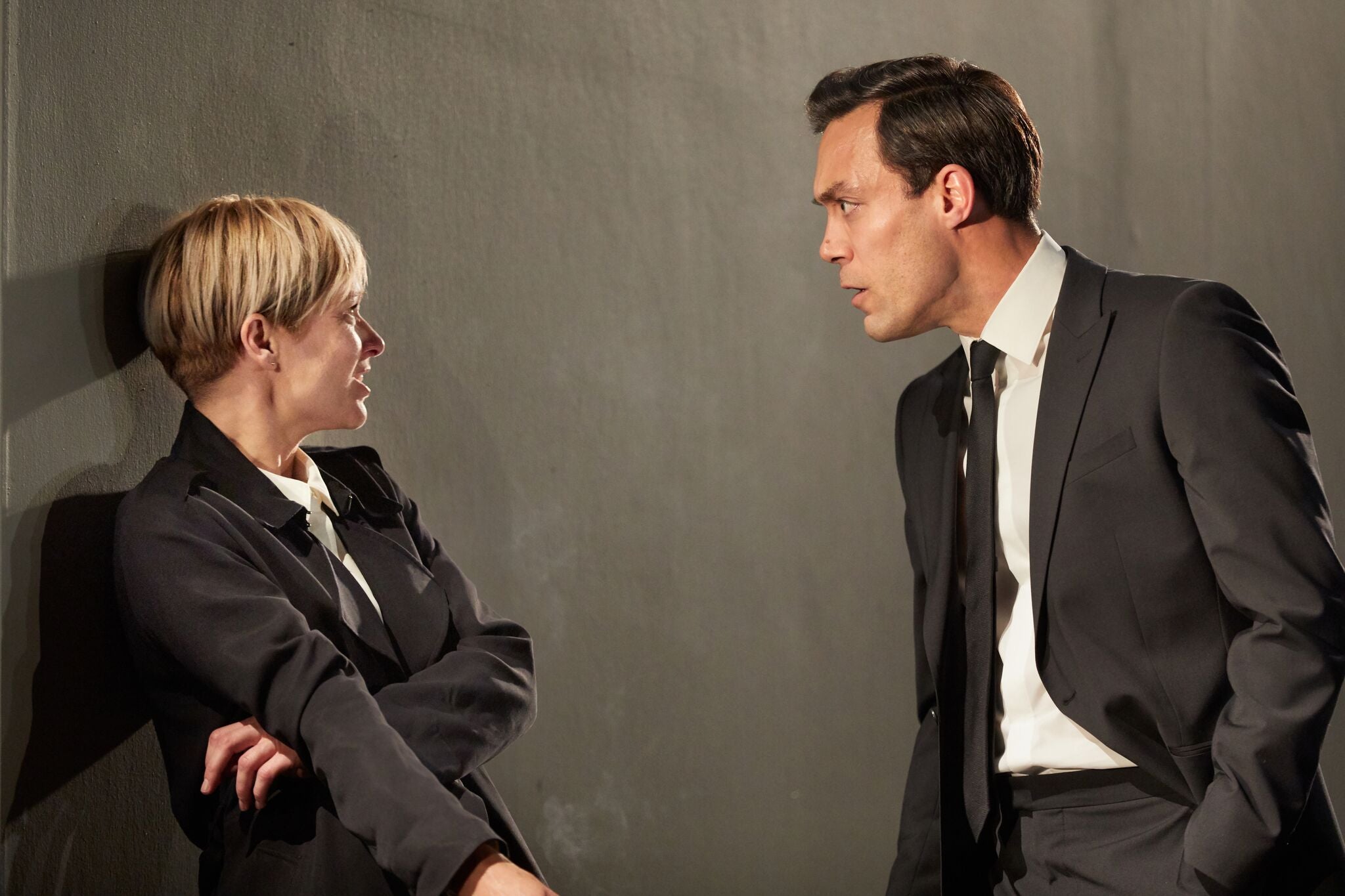David Hare's 'I'm Not Running', National Theatre, Lyttelton review: An absorbing, flawed evening
Play starring Sian Brooke and Alex Hassell is a bemusing work that seems to be operating in a kind of vacuum or alternative past

David Hare's plays have kept up a continuous astringent argument with the Labour Party and what it stands for. These works include The Absence of War (1993), which analysed the surprise electoral defeat of the year before and presented the Labour leader (a fictionalised version of Neil Kinnock) as a tragic figure, forced by spin-doctors to suppress his true humane, funny and forceful self in order to look “prime-ministerial”. Hare's last substantial work in this vein was Gethsemane (2008), in which he dramatised his bitter disillusion with New Labour and its dodgy fundraising and the pragmatic ditching of any Utopian vision.
With I'm Not Running, Hare's 17th piece for the National, we were promised a play for the Corbyn era. The author, both a romantic socialist and a natural sceptic, is ideally placed to offer bracing insights into how Corbyn has transformed the nature of the party. But this is a bemusing work that seems to be operating in a kind of vacuum or alternative past. It's set in 2018, albeit with lots of flashbacks from 1997 (the year of the Blair landslide) onward. But it never once mentions Corbyn or Momentum or Brexit, and makes only passing references to the financial crisis.
Hare has every right to want to abstract and generalise his arguments – I just think that the central relationship would be stronger and richer if it had a more textured context. Two acrimonious contenders for the Labour Leadership spit venom at each other; the rest of the the party and indeed the Tory front bench-seem to be so little in their thoughts that you might wonder if they had vaporised.

What gives the play its bite and its emotional power is the fact that that this pair have known each other since their students days in Newcastle when they were fraught lovers. Temporal leaps backwards show us Pauline Gibson, played with a fine intensity and mocking elusiveness by Sian Brooke, reading medicine and still in the grip of a dying, manipulative mother who drinks vodka for breakfast and stubbornly romanticises her husband's violence against her. Law student Jack Gould (excellent Alex Hassell) want to escape his family too (shades of the Milibands here – his father wrote a brilliant work of social theory). But they are both terrified of dependency and so resentfully split up.
The play is somewhat reminiscent of James Graham's Labour of Love in that the personal and political become intertwined in the course of a long relationship (20 years), except that only one of them is in the Labour Party. The other tries to good by single-issue politics – running a five-year campaign to save her local hospital from closure. This turns her into a national heroine and not only does she win a by-election but also – as happens to few independents – she gets back again in the general one. At various stages, this brings her back into contact with Jack, who is now a rising Labour star with s rock-solid Newcastle seat. In one eloquently messy scene, we realise that he has just bedded her without telling her that he will not be able to sign her petition – the reason for her visit. It was he who improved the drafting on the document about NHS streamlining that put her hospital in peril.
Neil Armfield directs a passionate, fluent production that whisks us around the variations locations courtesy of Ralph Myers's spare, revolving room of a set. Hassell's Jack becomes a mansplaining smoothie who never completely loses an edge of panic. He and Brooke excel at digging into the ugly personal feelings that sour their disputes. Can a single-issue politician ever evolve successfully into leader material or is single-issue just a way of having no politics? Jack scoffs at Pauline that she has no sense of the identity of the party or its tradition. She replies that there's a tradition she understands better than him: "'Never put a woman in charge.' There's always a reason. It's never the right woman. It's never the right time. Are you running out excuses?”
An absorbing, flawed evening – and very far from being a single-issue play.
Until 31 January 2019. The production will be broadcast by National Theatre Live on that date nationaltheatre.org.uk
Join our commenting forum
Join thought-provoking conversations, follow other Independent readers and see their replies
Comments
Bookmark popover
Removed from bookmarks